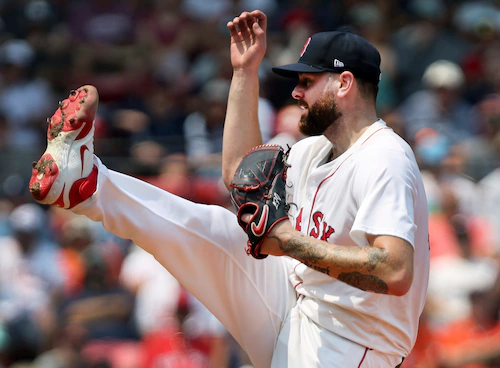Title: Red Sox Starter Declines Mutual Option, Hits Free Agency — Club Loosely Positioned to Issue Qualifying Offer
In a significant development for both the player and the Boston Red Sox, veteran right-hander Lucas Giolito has declined his half of a mutual option for the 2026 season, thus making him a free agent. (Reuters) Under the terms of the agreement, Boston had the right to exercise a club option, but because Giolito declined the mutual option, he will instead receive a buyout and enter the open market. (FOX Sports)
What Happened
Giolito posted a strong return campaign for the Red Sox in 2025 following elbow surgery that kept him out for all of 2024. During the season, he made 26 starts, logged 145 innings, went 10-4 with a 3.41 ERA. (Reuters) Because he surpassed the 140-innings threshold, his initially scheduled club option of $14 million for 2026 morphed into a mutual option of approximately $19 million. (Yardbarker) Giolito chose to decline this option and instead accept the buyout ($1.5 million, per reports) and test free agency. (Reuters)
Why It Matters
For Giolito, the choice reflects a belief in his value and health status — despite the recent elbow issue, he wants to secure a longer-term deal rather than a one-year mutual option. For Boston, the decision places an interesting decision point: the club now has the right to issue a one-year qualifying offer (QO) — which this year is projected at about $22.025 million. (MLB.com) If Giolito accepts the QO, he’s committed for one year at that value; if he declines and signs elsewhere, Boston would receive draft-pick compensation.
Strategic Implications for Boston
The Red Sox front office finds itself balancing several factors:
- Rotation Outlook: Boston has younger starters waiting in the wings. The club may decide that locking in Giolito again at a high one-year number is less favourable than redirecting resources. (MLB.com)
- Risk vs. Reward: Giolito’s comeback from surgery and late-season elbow trouble introduces injury risk. While his ERA and innings look strong, the underlying health question may suppress his market. (Yardbarker)
- Market Positioning: If Boston issues the QO, it signals a willingness to retain Giolito at a price. If they don’t, it signals a pivot away — perhaps toward younger arms or different roster configurations.
- Compensation Consideration: By issuing the QO, Boston ensures they’d receive a draft-pick if he departs. Skipping the QO means no compensation but also avoids the possibility of a highly-paid one-year commitment.
What’s Next for Giolito
Giolito now enters the free-agency market with strong credentials: a return to health, a solid season in a major league role, and upside as a veteran starter. The question for his next deal is whether teams will reward him with a multi-year contract, or whether he will accept the QO and bet on another strong season before re-entering free agency.
If he spurns the QO, teams will place a draft-pick cost on signing him — likely reducing the number of suitors. Accepting the QO gives him a guaranteed one-year deal at a high salary, but commits his short term. Either way, his outcome will depend on market demand, his health assurances, and how teams view his performance.
In Summary
Lucas Giolito’s decision to decline his mutual option sets in motion a pivotal offseason for both him and Boston. The Red Sox must decide whether to issue the $22 million qualifying offer, hedge their rotation plans, and weigh whether to re-invest in Giolito for one year or move in a different direction. For Giolito, testing free agency signals confidence — but it also introduces risk in a market that may view his comeback season with caution.
